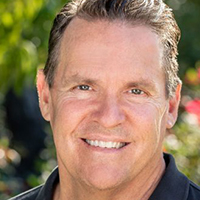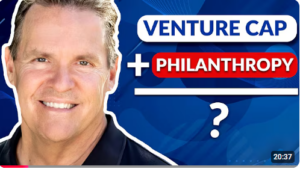5 Dynamic Philanthropy & Impact Investing Insights

The Power of Impact Investing: Bridging Philanthropy and Profit
This article is based on an interview of Geoff “Chester” Wooley, Co-founder, Patamar Capital and current Board member of SKS Microfinance, India’s largest microfinance bank by Alan Olsen on his American Dreams show on behalf of Legacy Builder’s invitation only philanthropy events.
Impact investing is more than a buzzword—it is a transformative approach that aligns financial returns with meaningful social and environmental benefits. Geoff “Chester” Woolley, Co-founder of Patamar Capital and a board member of SKS Microfinance, brought this concept to life during his interview on Alan Olsen’s American Dreams Show.
Woolley’s insights not only illustrate the immense potential of impact investing but also highlight actionable strategies for integrating it into family offices and venture capital frameworks.
For individuals and organizations looking to build a robust portfolio, impact investing offers a well-defined avenue to align financial growth with broader societal goals. By employing targeted strategies, investors can support initiatives that drive positive change while generating attractive returns. This approach has garnered significant interest in recent years, as more people recognize the potential to create a lasting impact through thoughtfully curated investment opportunities.
The market for investments addressing environmental impact has grown significantly as investors seek well-defined opportunities to contribute to sustainability goals. By channeling resources into environmentally conscious projects, such as renewable energy or conservation initiatives, investors can play a pivotal role in fostering a greener future. This shift reflects a broader recognition of the financial and ethical value in supporting ventures that prioritize long-term ecological stability.
Building a portfolio that includes investments in low income communities and renewable energy can provide both financial returns and a sense of purpose. Organizations that prioritize clean energy initiatives, such as solar or wind power projects, are increasingly gaining attention from investors looking to align their financial strategies with their values. By supporting these organizations, investors not only diversify their portfolio but also contribute to meaningful advancements in sustainable development.
1. What is Impact Investing: A Game-Changer for Low-Income Communities
Woolley describes impact investing as creating products and services for low-income communities globally, treating them with the respect and dignity they deserve. He emphasizes that the poor often face overpriced products of low quality coupled with poor service.
“If you can treat this market as a true customer,” Woolley asserts, “you open up opportunities to billions of underserved individuals.”
This approach underscores the dual objectives of impact investing: generating financial returns while addressing pressing societal challenges. The rise of microfinance is a prime example, with institutions like SKS Microfinance offering loans to millions of underserved women in India.
Studies have shown that microfinance not only fosters entrepreneurship but also improves access to education and healthcare. Source: Center for Global Development.
2. Breaking Silos in Family Offices: The “Perfect Storm” for Impact Investors
One of the central themes in Woolley’s discussion is the disconnect within family offices between philanthropic activities and profit-driven investments. These silos often hinder the flow of capital into impactful ventures.
Impact investing, Woolley argues, acts as a bridge, offering an appealing dual purpose—financial gain and meaningful change. This is particularly effective when family office founders, often entrepreneurs themselves, are involved.
Their entrepreneurial mindset fosters a natural affinity for risk-taking and problem-solving, traits essential for impact investing’s success.
Recent trends highlight that family offices are increasingly embracing this integrated approach. A UBS report revealed that 39% of family offices engage in sustainable investments, with impact investing being the fastest-growing segment. Source: UBS Global Family Office Report.
3. Lessons from Microfinance: Risk, Return, and Transformation
Woolley’s experience with microfinance exemplifies how risk-taking can yield remarkable outcomes. He recounts how his team’s early investments in microfinance banks, once considered “nonprofit ventures,” resulted in substantial returns, including one exit valued at $2 billion from an initial $4 million investment.
This narrative challenges the misconception that impact investing requires financial compromise. Instead, it demonstrates that high-risk investments targeting underserved markets can generate outsized returns while creating significant social impact.
Woolley’s stance is supported by research indicating that impact investing funds often match or exceed traditional investment benchmarks. Source: Global Impact Investing Network (GIIN).
4. The Metrics of Impact Investments: Trusting Communities to Thrive
When evaluating impact, Woolley stresses the importance of balancing metrics with practical realities. “If fishermen make more money,” he notes, “it’s not our role to audit how they spend it. The poor are often better cash managers than the wealthy.”
This perspective highlights the need to trust beneficiaries while focusing on broader metrics such as income growth, education, and housing improvements.
Frameworks like the Global Impact Investing Network’s (GIIN) IRIS+ system offer standardized metrics to measure social impact without overburdening entrepreneurs. Source: GIIN IRIS+.
5. The Entrepreneurial Edge: Key to Impact Investing Success
Woolley’s career underscores the vital role of entrepreneurial experience in impact investing. He advises aspiring investors to first gain hands-on experience in startups or venture firms, emphasizing that understanding the challenges of building a business fosters empathy and better decision-making.
This approach aligns with data showing that impact-driven entrepreneurs often achieve greater scalability and profitability when supported by investors with entrepreneurial backgrounds. Source: Harvard Business Review.
The environmental impact alongside the deployment of investment capital has become a central focus for a growing number of investors globally. According to the World Economic Forum, investments that consider environmental, social, and governance (ESG) factors are gaining traction even in developed markets. These investments aim to generate both financial returns and beneficial social outcomes, addressing climate change, sustainability, and broader societal challenges. Case studies highlight how strategic ESG investments have enabled companies to address pressing issues while delivering long-term value.
A rising trend involves integrating fixed income strategies into impact investing portfolios, especially in areas such as affordable housing and increasing access to essential services. Organizations are leveraging innovative approaches to create infrastructure projects that enhance access to housing for underserved communities while remaining financially sustainable. The Financial Times notes that as more investors prioritize such strategies, they contribute to building a world where profitability aligns with inclusivity and sustainability. This shift underscores the importance of shared values in shaping investment frameworks for scalable and impactful results.
Building a Brighter Future Through Impact Investing Market
Geoff Woolley’s journey—from pioneering venture debt to scaling microfinance—illustrates the transformative power of impact investing. By treating underserved communities as valued customers and breaking silos within family offices, Woolley’s approach creates pathways for both financial success and societal advancement.
For individuals and institutions eager to explore impact investing, Woolley offers simple advice: take risks and focus on the people behind the ideas. As he eloquently puts it, “The return on impact should be no different than in venture capital. Risk and return are interrelated, and when done right, both the financial and social rewards are immense.”
The impact investing market has grown significantly over the past decade, drawing interest from institutional investors and individual investors alike. This rise is fueled by a growing demand to align investment goals with positive societal and environmental outcomes. According to recent reports, asset classes such as private funds and equity have become key vehicles for channeling money into projects that achieve both financial returns and measurable social impact. Source: The GINN.org https://thegiin.org/
Private sector investors, including private investors and faith-based investors, play a critical role in shaping the impact investing landscape. These individuals and institutions are increasingly recognizing that strong returns do not need to be sacrificed for ethical or sustainable investments. Collaborative efforts among diverse groups of investors ensure a wider pool of resources to support innovative solutions across various sectors. Source: forbes.com
Equally important, institutional investors are setting trends by integrating impact investing strategies into their portfolios. This momentum serves as a catalyst for other private funds eager to balance risk and financial returns with broader social change. By leveraging equity and other growth-focused asset classes, these investors demonstrate that achieving social good is not only ethical but also economically viable. Source: msci.com
Global Impact Investing Network
The Global Impact Investing Network (GIIN) fosters resources, education, and collaboration within the impact investing community, helping investors align capital with initiatives addressing global challenges like poverty, climate change, and inequality.
To view more content like this, click here to subscribe to our YouTube channel
And click here to receive our FREE Newsletter.

More about Geoff “Chester” Woolley:
He founded eight venture and impact funds focused on the US, Europe, S. Asia and SE Asia. Has invested over $3 billion in early stage venture equity, venture debt, and impact investing. Starting in the 1982, pioneered the concept of venture debt and raised his first institutional fund at 24 years of age.
Focused on creating companies that provide products and services to the underserved around the world.
“I imagine a day when people make decisions based upon how they want to be treated.”
Geoff has been active in venture capital investing for over 30 years, managing more than $2 billion in investment capital as the founder of successful venture funds in the United States, Europe, and Asia.
As Founding Partner of Dominion Ventures and European Venture Partners (now called Kreos Capital), Geoff pioneered the concept of venture debt. Over his career, Geoff has invested debt and equity in over 400 companies, including Ciena, Coinstar, Hotmail, and Human Genome Science.
Geoff has been involved in frontier market venture capital investing since he joined Unitus Labs as a board member in 2001.
During his time as Unitus Labs’ Capital Markets Chair, he was instrumental in the launch of Unitus Equity Fund, the first commercially focused micro finance equity investment fund, as well as Unitus Capital, the first investment bank focused on serving social enterprises throughout Asia.
Since its launch, Unitus Equity Fund and its successor Elevar Equity have raised three funds totaling nearly $168 million, while Unitus Capital has successfully arranged over $1.6 billion in debt and equity financing for social enterprises.
In 2011, Geoff co-founded Patamar Capital (formerly Unitus Impact), a frontier markets venture capital firm with the mission of unlocking better economic opportunities for Asia’s low-income communities.
In addition to his current role as Co-Founder and Partner of Patamar Capital, Geoff holds board seats at MicroBenefits, Jana Care, and Kinara. He is a founding and current board member of SKS Microfinance, India’s largest microfinance bank, and Samhita Microfinance.
As co-founder, Geoff launched the largest student-led venture fund in the United States, the $18.5 million University Venture Fund.
In addition, Geoff launched the University Impact Fund, which partners university students with top-tier impact investing firms and social enterprises to provide the students with real-time exposure to projects and investments.
Geoff holds a B.S. in Business Management from Brigham Young University and an MBA from the University of Utah.
Patamar Capital is Southeast Asia’s leading impact-driven VC firm. Founded in 2011, Patamar invests in early-stage companies building sector-defining platforms that maximize positive impact and financial returns.
Founded in 2011, Patamar got its name from the traditional Indian ‘dhow’ boat. This wooden, sail-powered boat was a historic mode of transportation in the Indian Ocean, which connected communities and facilitated economic exchange.
This one word encapsulates our purpose: serving the hundreds of millions in Asia.


Thank You!
India Gets Help From the IRS to Track Down So-Called “Black Money”
India Gets Help From the IRS to Track Down So-Called “Black Money” We’re all aware of the U.S. government’s efforts to bring home tax dollars from those who either hold or earn money in foreign countries. Whether a company or an individual taxpayer is open about their money or purposely trying to hide it, the…
Strategic Asset Management With a Revocable Living Trust
Strategic Asset Management With a Revocable Living Trust Developing a sound investment management strategy is more than allocating assets and diversifying among the various asset classes. It is also about attaining your financial goals in life. The long-term security of your family is likely to be a key goal. To reach it, you want to…
A Safer Way to Invest in Stocks
A Safer Way to Invest in Stocks Investing in stocks can be really risky—particularly when somebody invests a lot of money at once and expects quick results. But it’s also true that investing in stocks can be surprisingly safe for certain investors. The men and women who are putting regular amounts into stock funds through…
IRS Makes It Difficult to Use “Separate Share” Trusts
IRS Makes It Difficult to Use “Separate Share” Trusts By Mary Kay Foss California CPA, August 2003 The IRS has issued a series of private letter rulings (LTRs 200317041, 200317043, 200317044) this year that make it difficult to use “separate share” trusts. A separate share trust is a trust named as an IRA beneficiary that…




